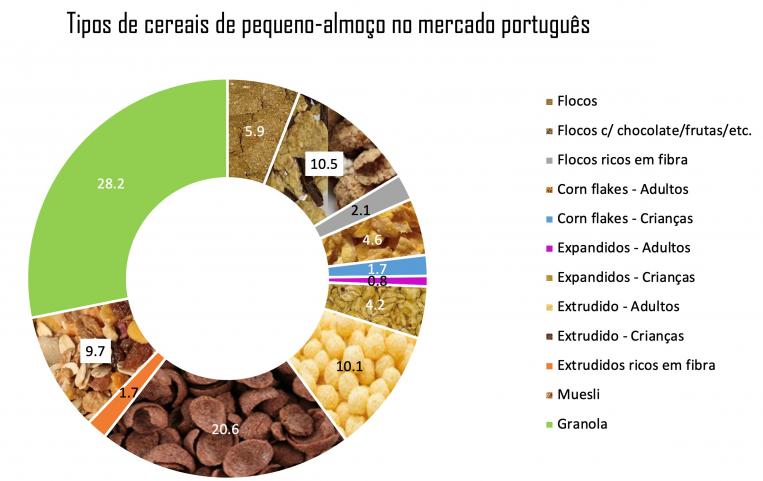By: Diva Santos

Dietary fiber has several proven health benefits that go far beyond the known control of intestinal transit. However, these benefits, which include the prevention of coronary heart disease, obesity, cancer and even the reduction of mortality, are only obtained with a daily intake of at least 25 grams. Unfortunately, in Portugal, the average fiber consumption is far below the recommended level: we stick to 17 grams daily.
Given the large consumption of breakfast cereals in Portugal – more than half of the population consumes cereals – it is justified to assess the nutritional quality of these cereals in terms of fiber content. At the CBQF, more precisely in the group of Dr. Manuela Pintado, researcher Diva Santos undertook this work and found that very few cereals (only 3.8%) have a relevant fiber content (above 10%). The maximum found on the market was a concentration of 29% fiber. That is, on average, breakfast cereals in Portugal provide a small amount of fiber for each meal, which does not contribute to achieving the desirable average daily value.
Other study results include:
- Most baby cereals need a reduction in sugar: they have a sugar content above the red limit of 23.5%.
- Most cereals have healthy values of total fat, saturated fat and salt.
- There are few nutritional differences between branded products and private label generics, but when they do exist, it is generally the branded products that have a healthier composition.
- Globally, the healthiest products are found in the group of fiber-rich extrudates (all bran type), flakes, adult extrudates, granolas and muesli. However, even within these groups there are less healthy products, that is, with high sugar and low fiber content.
The work was carried out through the analysis of the labels. 247 products were collected for statistical analysis in the largest Portuguese retailers with an online store with nutritional information. Products made up 100% of a cereal such as oat flakes or barley, puffed rice, etc., were excluded, since in this case the nutritional content depends only on the cereal and not on the formulation of the product. Cereal bars and porridge were also not considered.
The scientific article with this work is available online:
Diva Santos, Rui Barros, José A Lopes da Silva, Manuela Pintado. Which Type of Breakfast Cereals is Healthier: Evaluating Labels in the Portuguese Market. Nov Tech Nutri Food Sci. 6(4). NTNF. 000641. 2022. DOI: 10.31031/NTNF.2022.06.000641



